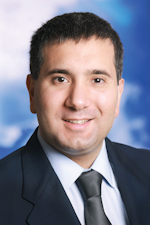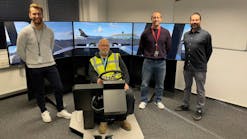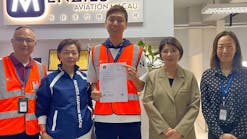The Evolution of Training
The priorities of aircraft ground handling companies have changed since the pandemic and training for ground operations has reflected this change. Additionally, current infrastructural constraints are also impacting aircraft ground handling.
According to UAS International Trip Support, to achieve improved performance and safety in global ground handling, there is a need to think in terms of innovation, technology implementation and sustainability.
Several airline clients are rapidly scaling up – and sometimes scaling back – their operations and changing their aircraft fleet composition in response to travel demand, points out Whittle.
“This presents challenges in meeting the required volume of training and the specialized skillset training that is required, e.g., upskilling from bulk loaded to containerized aircraft,” he says.
Online Training
Online training in the aircraft ground handling industry is currently in a steep growth phase, accelerated by the pandemic, according to Chew.
“It will become increasingly more common to enhance instructor-led practical training with blended learning,” he says. “Obtaining the knowledge of operational and safety concepts and theories via online training provides learners with suitable background before going into practical and on-the-job training.”
Swissport Australia utilizes online and digital learning for training its airport team members, where it is the most appropriate tool for the job, according to Whittle.
“It is especially suited to very standardized training where consistency in message and content is critical, i.e., knowledge transfer is a key outcome. Examples of where this type of training is deployed is most commonly during induction training or even knowledge based ‘recurrency’ training,” says Whittle. “We rarely leave employees to undertake online training solo/in isolation, especially for induction/onboarding. This type of training is nearly always delivered in an environment where a qualified trainer is available for support, to answer questions and clarify questions participants may have as well as debrief each training module before the training group moves onto the next topic or into the practical training environment for hands-on experience.”
The new ground handling training curriculum being introduced by Swissport Australia sees many traditional presentations being replaced by engaging, digital learning courses that incorporate activities and contain multimedia, such as videos, GIFs and more.
“These courses help participants to understand the ‘why’ we do, ‘what’ we do and to see ‘how’ the task is performed in a very consistent way that is not influenced by trainer bias, operational constraints, weather, etc.,” Whittle says. “The courses can be delivered in an e-learning format and debriefed by a trainer or presented by a trainer in lieu of a standard PowerPoint presentation. Participants can see an entire task being performed and then have that activity broken down into small, easily understood content chunks.”
Airline Specific Requirements
A peculiarity of the training business is the need to cater for airline specific requirements in aircraft ground handling training.
“Airlines provide airline-specific training materials and conduct train-the-trainer sessions, which we as their partner enhance by localizing and contextualizing the content,” says Chew. “dnata also has its internal global system, which is in line with international regulatory requirements and incorporates best practices, SOPs and work instructions across its network. These are used during internal training sessions and localized according to equipment type or local regulations.”
Whittle observes that many of Swissport Australia’s airline partners refer to the training already provided by Swissport to its employees and adopt a “differences” approach.
“In this way, the unique or specific requirements for an airline are overlayed across our standard operating procedures,” he says. “This is allows our team members to focus on key differences they must implement to ensure the individual needs of our customers are fulfilled.”






